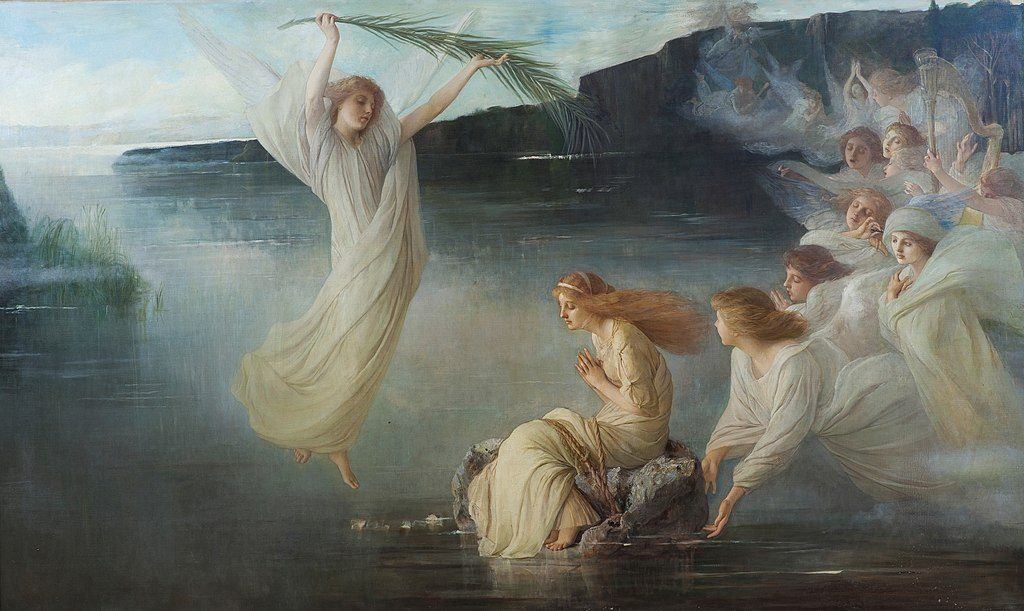When martial law was introduced in Poland, in December 1981, I was nine years old. My parents were deeply involved in the Solidarity Trade Union activities. We looked to the West as a source and model of freedom, and reciprocal respect among citizens above all, in a country with shortage of basic goods (the result of “socialist economic planning”). For most Poles, and others in the Socialist Paradise, we wanted a flourishing economy. We did not understand, and some dismissed, the message of Pope John Paul II, who talked about the risk of Western “consumerism,” the danger of treating personal liberty as “God,” and other social problems in the West, which the collapse of communism in 1989, brought to the fore, along with independence from the Soviet Union.
Today, exactly 30 years later, I have difficulties understanding what is happening in Poland. I do not understand who are the people who protest and oppose the present (conservative) government, and who are those who blame and attack the Polish Catholic Church – which was the refuge for the anti-communist opposition (the believers, the agnostics, and atheists) – of every crime possible? Why the did the high ideals we believed in and fought for disappear?
As Ryszard Legutko writes in his “The Necessity of Opposition,” the problem is much more complicated. Today, the so-called ‟opposition” in Poland is not a spontaneous movement of people trying to change their social and political situation. On the contrary, its activity is a symptom and a consequence of a worldwide tendency to abolish all traces of Christian culture and to present it as unattractive, out of date and unnecessary. It started as an apparently innocuous distrust of European heritage. From such a point of view, it is only proper to see European culture – its literature, history, science — as oppressive and, therefore, less interesting than cultures of other continents.
At the same time, there was a rush towards non-traditional themes of research. For example, in the humanities, every supposed expression of sapphic love or homoeroticism in literature became an intriguing subject of study, and the question of abjection seemed to be more curious than that of admiration. Popular culture was praised, and the Classics were condemned (Harold Bloom described the problem in his Western Canon in 1994). What many decades ago looked like a need for novelty – to look at the canon from several “underrepresented” minority perspectives – turned out to be a measured strategy of fighting against the system of values that derive from Christianity. The fact that it was not merely the Christian heritage, but the heritage that it was built on, the earlier Greek and Roman cultures, did not matter either. The fact that the Christian religion has its roots in the Jewish Old Testament, and that the European Jews, are imbedded in the same Western tradition became irrelevant for the new social reformers.
Christian and non-Christian believers should not be surprised by what has happened. To many of us, our current situation – the encounter between the postmodern and traditional culture – is part of the eternal combat between good and evil.
This fight, to me, a Catholic, has already been won when Jesus Christ died on the cross and was resurrected. The opposition to evil is possible and required. But we should not expect an easy success in our counterinsurgency (if that is the right word for ‟being opposite to the opposition”). The Gospel is clear as to what a Christian may expect from the world: ‟Then they will hand you over to persecution, and they will kill you. You will be hated by all nations because of my name. And then many will be led into sin; they will betray and hate one another. Many false prophets will arise and deceive many; and because of the increase of evildoing, the love of many will grow cold. But the one who perseveres to the end will be saved” (Matthew 24, 9-13).
Naturally, the salvation is not the earthly one, but it must be seen in its theological context. It means that the victory that may be attended is the moral one, not the actual seizing of power. What has recently been happening in the world is just a vain attempt to seize power, and it is a sign that we are living in the Last Days. Does it mean that it makes no sense to defend the values we cherish because the end of time is near? Of course not, if we respect what the Bible says about the responsibility of a disciple of Christ. Our task is to call a spade a spade, to speak the truth, to recall virtues which render us human beings and distinguish us from animals.
As Theodore Darlymple claims, man should not be defined by instincts and physical impulses, as he is a person endowed with mind and soul. Prudence, justice, fortitude and temperance are just as necessary as freedom.
Olga Płaszczewska is Professor of Polish Literature, at the Jagiellonian University, Poland.
The featured image shows, “The Martyrdom of Saint Christina,” by Vicente Palmaroli; painted in 1895.
